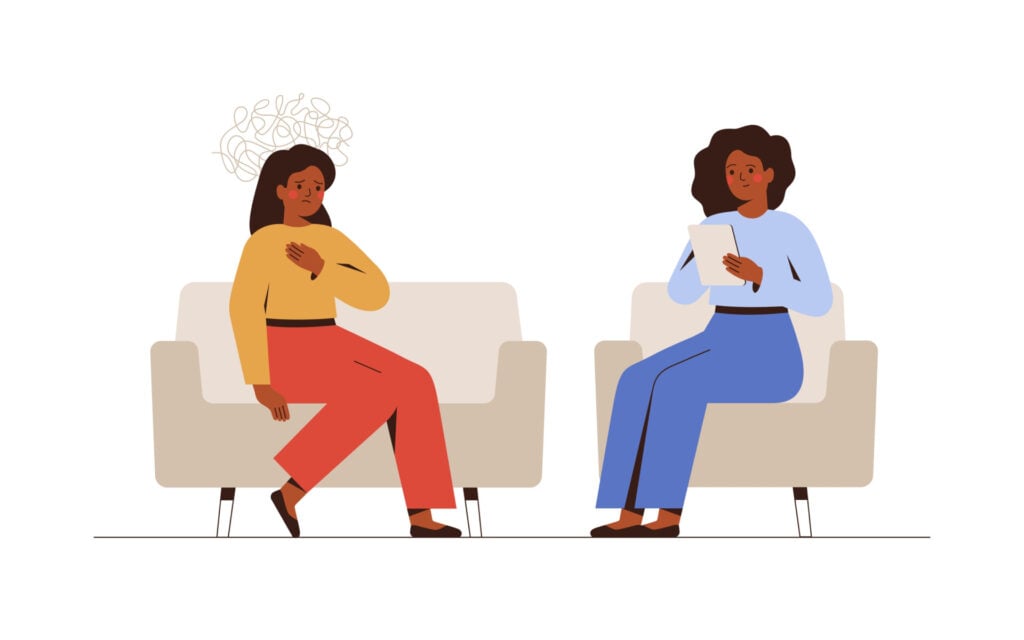Many people struggle to find a therapist who truly understands their identity—but for lesbian, gay, bisexual, transgender, and queer individuals who are also people of color, that search is often even more difficult.
New research sheds light on the unique mental health experiences of this multiply marginalized population, highlighting persistent gaps in culturally responsive care.
A new study by Sakura Ito and colleagues, published in Clinical Psychology: Science and Practice (2025), explores how LGBTQ+ people of color experience mental healthcare in the United States and what they want from providers.
Drawing from 23 qualitative studies published between 2010 and 2023, the review offers a thematic synthesis of participants’ perspectives and proposes recommendations for improving care.

The key finding: many LGBTQ+ individuals of color report that mental healthcare services frequently fall short in addressing their needs, due to a lack of cultural knowledge, identity-affirming practices, and systemic accessibility. This results in distrust, dissatisfaction, and, in many cases, delayed or avoided treatment.
The study is grounded in the concept of “multiple minority stress,” which describes how intersecting identities—such as race, gender, and sexual orientation—create unique, compounded stressors.
These can include not only general experiences of discrimination, but also more specific challenges like feeling alienated in therapy, encountering cultural stigma around mental health, or being misdiagnosed due to provider bias.
Previous research suggests that such stressors are linked to elevated risks of depression, anxiety, and suicidal ideation among LGBTQ+ people of color.
To better understand how these intersecting identities shape mental healthcare experiences, the researchers analyzed data from studies involving LGBTQ+/POC adults in the U.S.
The review included first-person narratives about therapy, treatment access, and identity-related challenges. It also looked at structural issues like cost, provider diversity, and availability of tailored services.
Five key themes emerged from the analysis.
First, participants emphasized the importance of provider competence. This includes not only knowledge of LGBTQ+ and racial/ethnic identities but also the ability to apply that knowledge thoughtfully.
Many reported frustration with having to educate their therapists on basic terms, which detracted from actual treatment.
They expressed a strong preference for clinicians who demonstrated awareness of intersectionality—how different aspects of a person’s identity interact to shape their experiences.
Second, many participants said they felt more comfortable with providers who shared one or more of their identities, such as race, gender, or sexual orientation.
Shared identities helped build trust, reduced the need for self-explanation, and fostered a sense of being seen as a whole person rather than as a clinical category.
However, such providers were not always available, and some clients felt forced to “split” their identities between different therapists or hide parts of themselves to avoid judgment.
Third, the review found that structural barriers remain a major obstacle. These include cultural stigma around mental health in some communities, high treatment costs, long wait times, and limited provider availability.
Discrimination within the mental healthcare system itself was also reported, ranging from microaggressions to overtly harmful practices like misgendering or, in some cases, conversion therapy.
Despite these challenges, the review also identified factors that facilitated access to care. Supportive social networks—especially friends, chosen family, and LGBTQ+ community organizations—played a key role in encouraging help-seeking.
Access to low-cost or free services through schools, nonprofits, or faith-based institutions (when LGBTQ+-affirming) also helped some individuals overcome systemic barriers.
For the general public, these findings underscore why simply having access to therapy is not enough.
Affirming care must be actively cultivated.
When mental health providers are not trained in culturally responsive approaches, they may unintentionally invalidate clients’ experiences or fail to understand how cultural context shapes mental health.
For LGBTQ+ people of color, this can lead to feelings of invisibility, mistrust, or even harm in clinical settings.
The authors argue that to improve care, providers must go beyond surface-level inclusivity. Their recommendations include building skills in cultural humility, increasing awareness of intersectionality, and avoiding reliance on clients to educate clinicians about their own identities.
Training programs, they suggest, should be updated to include historically accurate discussions of how clinical psychology has pathologized marginalized identities and to recruit more diverse clinicians to meet community needs.
While the review offers valuable insights, the authors note that more research is needed.
Most studies included in the review were published in the last five years, and many identities—such as older LGBTQ+ adults, Native American individuals, or asexual people of color—were underrepresented.
Future research should work to amplify these voices and examine how barriers to care operate not just at the individual level, but also within institutions and policies.
Ultimately, the findings offer a clear message: to meet the mental health needs of LGBTQ+ people of color, providers and systems must listen to what the community is saying and act accordingly.
Representation, cultural knowledge, and identity-affirming care are not optional—they are essential components of effective mental healthcare.
Citation
Ito, S., Jans, L. K., Rosenfeld, E. A., Shen, J., Vilkin, E., Gonzalez, A., & Vivian, D. (2025). Mental healthcare experiences and preferences among lesbian, gay, bisexual, transgender, and/or queer/people of color: A scoping review of qualitative research and recommendations for provider training. Clinical Psychology: Science and Practice, 32(2), 105–121. https://doi.org/10.1037/cps0000241

